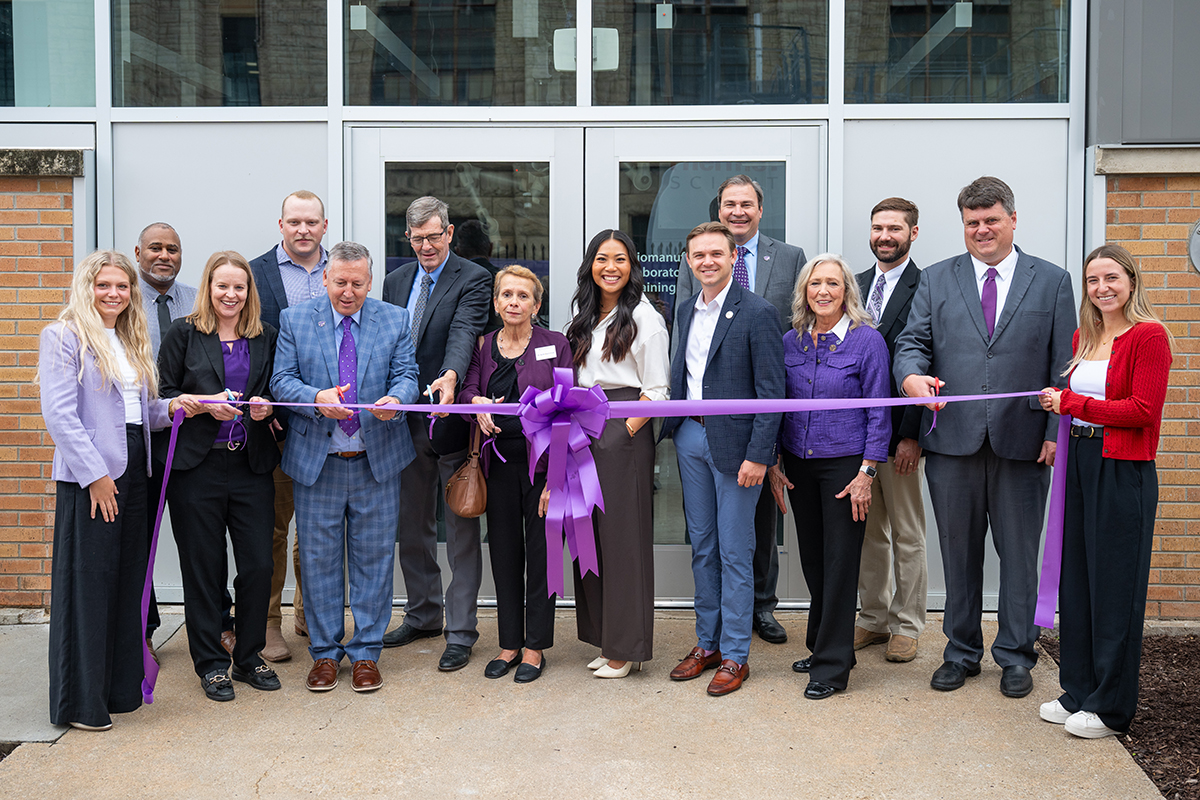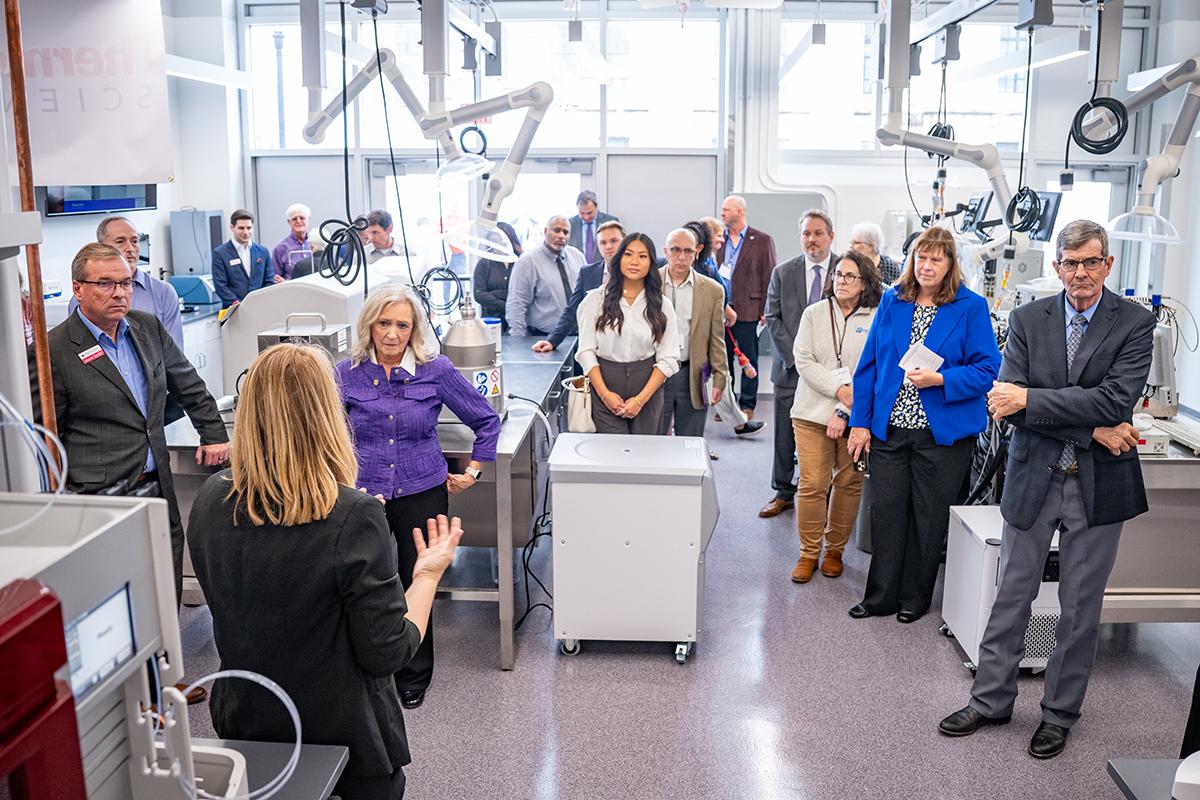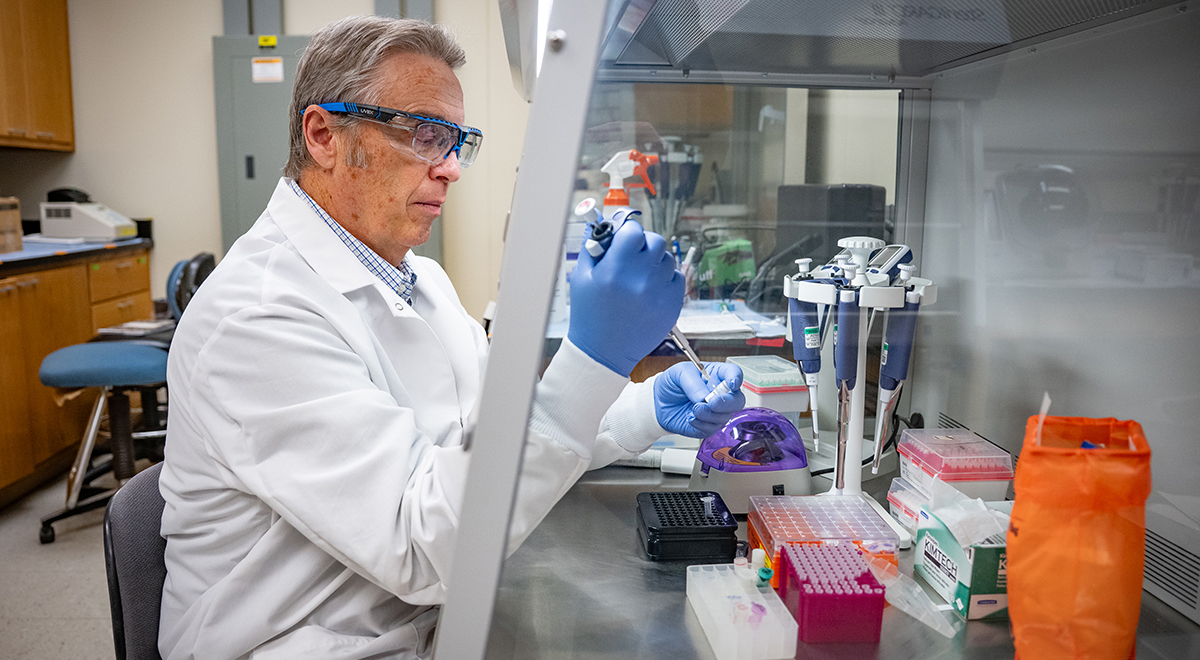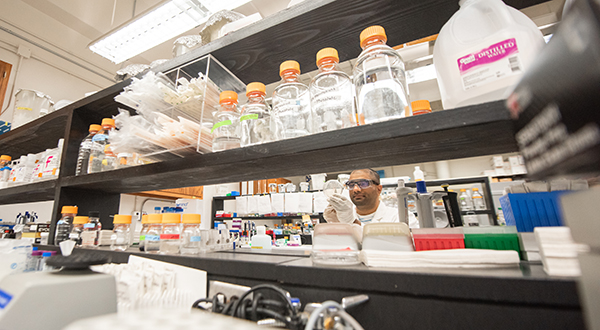K-State's biomanufacturing hub
New Biomanufacturing Laboratory and Training Facility connects industry, research and education
When students step into the new Biomanufacturing Laboratory and Training Facility at Kansas State University, they enter a space that goes beyond teaching techniques. The laboratory, housed in Seaton Hall, will shape the future of workforce development, research and regional leadership in biomanufacturing — a sector that is rapidly expanding across Kansas and the nation.
At a ribbon-cutting ceremony on Sept. 23, university leaders described the facility as a cornerstone of the Biomanufacturing Training and Education Initiative — an ambitious effort to connect industry, research and education while establishing Kansas as a national leader in biomanufacturing and biosecurity.
"The Biomanufacturing Initiative empowers K-State students and faculty by providing hands-on, industry-aligned training and immersive research experiences that prepare them for rapidly evolving careers in biomanufacturing," said Beth Montelone, senior associate vice president for research and project director. "By connecting cutting-edge technology, advanced facilities and collaborative industry partnerships, we are broadening opportunities for our students and community while strengthening the region's economic growth and talent pipeline."

University, state and community leaders celebrate the grand opening of the new facility with a ribbon-cutting ceremony, marking the launch of expanded research and training opportunities. | Download this photo.
Preparing talent for a growing industry
Inside the new lab, students engage directly with the tools and processes that define modern biomanufacturing — from operating bioreactors and developing purification methods to using advanced analytical technologies. The experience goes far beyond classroom learning, immersing students in the same conditions they will encounter in professional settings.
Lisa Wilken, associate professor of biological and agricultural engineering and director of the Biomanufacturing Laboratory and Training Facility, said this direct, hands-on approach reflects the program's mission.
"Our vision is ambitious: to provide highly skilled talent necessary for the growing biomanufacturing industry, to foster strong partnerships with industry stakeholders, and to serve as a regional hub for both training and research," she said.
Supporting those efforts are other new spaces such as the Hays Family Interactive Classroom and the Hays Family WildCAT — Controls, Automation and Technology — Laboratory, both designed to encourage collaboration and innovative problem-solving.

Lisa Wilken leads a tour for a group of visitors through the state-of-the-art biomanufacturing laboratory, highlighting advanced equipment and research capabilities. | Download this photo.
Investment in education, research and the economy
The opening of the Biomanufacturing Laboratory is the latest step in an initiative supported by significant public investment. The state of Kansas currently provides $5 million in annual funding for the work, while a $7 million federal appropriation secured with the support of U.S. Sen. Jerry Moran has allowed the university to expand facilities and update equipment.
The network of collaborators extends beyond the university. The Kansas State University Research Foundation, the city of Manhattan, the Manhattan Chamber of Commerce and regional industry partners have all played a role.
"Investing in biomanufacturing goes beyond K-State — it's also an economic investment that underlines our commitment to work with industry partners," said Rachelle Banwart, K-State executive director of Corporate Engagement. "The biomanufacturing initiative brings new and exciting opportunities for engaging with businesses and corporations, which is exactly the type of collaborative work that we are leading as a next-generation land-grant university."
Looking ahead
While the Seaton Hall facility represents a major achievement, it is not the end of the vision. K-State is also renovating space in the Bioprocessing and Industrial Value-Added Products Innovation Center within the Edge District, with plans for cleanrooms and specialized spaces tailored for full-scale production of vaccines and biologics.
Additionally, through a strategic hiring initiative, K-State is bringing new expertise in synthetic biology, process optimization and biosecurity research — fields critical to both economic development and public health — to campus.
"The biomanufacturing initiative truly demonstrates K-State's commitment as a next-generation land-grant institution," Montelone said. "We aim to ensure students graduate with valuable applied learning experiences that not only prepare them for careers but also meet industry and research needs in Kansas and beyond."
###



